Protection Order Attorneys in Colorado
Whether you filed a protection order or have one issued against you, it's critical to know your rights. Our team of Colorado lawyers will help you navigate these confusing and stressful situations with ease.
Contact UsDo You Know Your Rights with Protection Orders in Colorado?
Whether you're seeking protection from someone or facing an order against you, protection orders can be extremely impactful on your well-being.
The criminal defense attorneys at Jorgensen, Brownell & Pepin, P.C. are here to support clients in Denver, Broomfield, Longmont, and Loveland when filing for, modifying, and defending against protection orders.
What is a Protection Order?
A protection order (also known as a restraining order) is an order issued by a Colorado court prohibiting one person from having contact with another. Generally speaking, protection orders are issued to keep the restrained person from harming a specific individual.
In Colorado, protection orders are classified in 2 ways:
- Protection Orders for Criminal Cases
- Civil Protection Orders
While protection orders function very similarly in criminal cases and civil cases, their root causes differ.
Protection Orders for Criminal Cases
Protection orders in criminal cases are also referred to as “mandatory protection orders” or “MPOs.”
The parties involved in a Colorado MPO case include:
- Victim/witness: The individual directly harmed or threatened or who testifies in a case.
- Defendant: Person accused of a crime.
During an active criminal case, an MPO may include no contact at all and prohibits the defendant from causing harm to the witness or victim, including:
- Harassing
- Molesting
- Intimidating
- Retaliating against
- Tampering
Especially with domestic violence cases, the respondent may be ordered to do more than simply stay away from the petitioner. The respondent could be ordered not to possess weapons, not to possess or consume alcohol or other controlled substances, or anything else the court deems appropriate.
Civil Protection Orders
The other type of protection order applied in Colorado takes place when an individual is afraid for their safety. Civil protection orders must be formally requested while protection orders in criminal cases are automatic.
The parties involved in Colorado civil protection order cases include:
- Petitioner: The person who files a protection order motion with a court.
- Respondent: The individual who is the person controlled by the protection order
Generally speaking, a petitioner will file for a civil protection order when they have experienced sexual assault, domestic violence (including coercion), stalking, physical assaults or threats, or another crime at the hands of the respondent. Next, a Colorado court will issue a temporary protection order (TPO) that lasts for 2 weeks, followed by a permanent protection order (PPO).
How to Obtain a Civil Protection Order in Colorado
To obtain a protection order in Colorado, a petitioner must go to an initial court hearing to explain the harm the respondent has caused them or the threats made. The petitioner must also prove that the acts are likely to continue if the court does not grant the protection order.
Once a Colorado court issues a temporary protection order (TPO), a second hearing is held to determine whether the order will become permanent. During this hearing, the respondent will have the opportunity to appear and argue why the protection order should not be made permanent.
Penalties for Violating Protection Orders
Violating a protection order in Colorado can have serious consequences. It is usually a Class 2 misdemeanor, but can go up to a Class 1 misdemeanor in certain circumstances.
- Class 1 Misdemeanor: up to 364 days in jail and up to a $1,000 fine
- Class 2 Misdemeanor: up to 120 days in jail and up to a $750 fine
Our Lawyers Represent Both Sides of Protection Order Cases in Colorado
Since protection orders can be extremely impactful to your well-being, it's critical to know exactly what options you have.
Whether you are a petitioner or respondent in a protection order case, we will help you understand and resolve your legal issues. Let the defense attorneys at Jorgensen, Brownell & Pepin, P.C. fight for your case!
Contact UsFAQs
What is a protection order?
A protection order (also known as a restraining order) is an order issued by a Colorado court prohibiting one person from having contact with another.
What’s the difference between mandatory protection orders (MPOs) and civil protection orders in Colorado?
Mandatory protection orders (MPOs) are issued automatically in criminal cases to protect victims and witnesses. Civil protection orders are requested by individuals who feel threatened or unsafe.
Who are the two parties involved in protection order cases?
The petitioner is the person who requests the protection order. The respondent is the person who is controlled by the protection order.
How do I get a civil protection order in Colorado?
The petitioner must attend an initial court hearing and explain why the respondent poses a current and future threat. If the court agrees, it will issue a temporary protection order (TPO). A second hearing is then scheduled to determine whether the order should become a permanent protection order (PPO). The respondent has the opportunity to attend the PPO hearing.
How long does a temporary protection order (TPO) last?
A temporary protection order (TPO) typically lasts about 2 weeks. After that, the court may hold a second hearing to decide whether to make the order permanent. The parties can also agree to extend a temporary order for up to a year.
Criminal Defense Specialties
Get more information about our criminal defense representation
We’ve Helped Others Like You
Our Colorado Attorneys











Get The Help You Need
Get JBP Legal’s experience on your side. Contact us for questions or a consultation.




